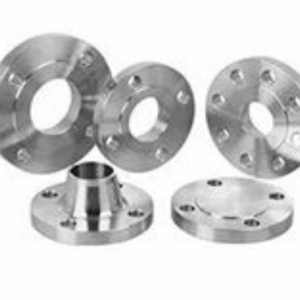A Gasket is an elastomeric component that seals the gap between two surfaces. Typically, various materials are used in manufacturing, such as rubber, paper, cork, copper, and foam. Because of its flexibility, this adaptable element may be utilised for various purposes. These include anti-vibration, packing, cleanliness, noise and sound reduction, and sealing, the most common use.
Piping Projects is one of the leading Gasket Manufacturer in India. Gaskets are utilised in nearly every industry, including food processing, petrochemicals, pharmaceuticals, water, and gas. Gasket materials are selected based on their properties and tolerance to various conditions, including severe temperatures, pressure, alkaline acids, mining, and the deep sea.
How does a Gasket Work?
Gaskets are utilised to form a static seal between two stationary elements of a mechanical assembly to preserve leak-proof sealing throughout the operation. The gasket material fills in the macro and micro defects in the flange, preventing the contained fluid from escaping from the assembly. The roughness of the surface determines how much gasket material must flow to create a tight seal.
The gasket must maintain its seal in all operational environments, including those with variations in pressure and temperature. Therefore, it is crucial to guarantee appropriate gasket design and selection to prevent leaks and costly process plant shutdowns. Furthermore, the gasket keeps the assembly's moving elements apart and shields them from rubbing against rough surfaces. A gasket is a sealing element that forms a seal between two surfaces by guarding against the inflow of gases and liquids.
Gasket or Seal?
Many people mistakenly use gaskets and seals similarly since "seal" may be used as both a noun and a verb. Seals, however, have a single, important distinction from this use.
To prevent leaks, gaskets and seals provide barriers between two items. Seals, on the other hand, are often made of flat, round washers similar to those found in faucets, and they serve to protect at least two moving parts (whether both move or just one).
Two static Seals make up a Gasket. These seals allow two static, non-moving parts to be locked together.
Gaskets are, therefore, frequently formed to match a particular static application. Alternatively, they may be sufficiently pliable to conform to a specific shape and hold it there for as long as they don't move in opposition to one another.
Applications and Uses of Gasket in Industries
We are a leading Gasket Supplier in India and other areas of India. Our gaskets are essential in various sectors because they provide a solid sealing mechanism between two or more mating surfaces. The following are some typical applications and purposes of gaskets in industrial settings:
Petrochemical: Gaskets are used in the petrochemical and chemical industries to seal connections in corrosive and high-pressure environments, including pipelines, valves, and flanges.
Oil and Gas Industry: Gaskets are commonly utilised in the oil and gas business, particularly for drilling equipment, wellheads, and pipeline connections. Their primary purpose is to supply a seal resistant to corrosive fluids, high pressures, and severe temperatures.
Automotive Industry: Gaskets are used in the automobile industry to form a reliable seal between engine components, preventing oil, coolant, and exhaust gasses from escaping.
Pharmaceutical Industry: Gaskets are used in pharmaceutical production equipment to maintain sterility and prevent contamination.
Cities we Supply Gaskets
- Gasket manufacturer in Raigad
- Gasket manufacturer in Pune
- Gasket manufacturer in Nashik
- Gasket manufacturer in Nagpur
- Gasket manufacturer in Ahmednagar
- Gasket manufacturer in Mumbai
To Learn more about Gasket Manufacturer Visit PipingProjects.in
Product Source: Gasket
Also Check: Cable Lugs Manufacturer in India






